| Srl | Item |
| 1 |
ID:
108804
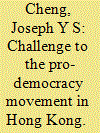

|
|
|
| 2 |
ID:
137460
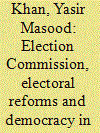

|
|
|
| 3 |
ID:
166058
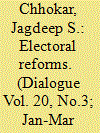

|
|
|
| 4 |
ID:
166060
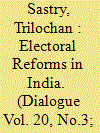

|
|
|
| 5 |
ID:
166061
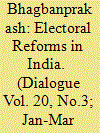

|
|
|
| 6 |
ID:
166056
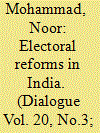

|
|
|
| 7 |
ID:
166057
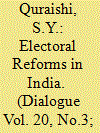

|
|
|
| 8 |
ID:
166062
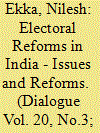

|
|
|
| 9 |
ID:
164687
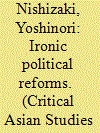

|
|
|
|
|
| Summary/Abstract |
An elected Senate and the party-list system are two institutional innovations of the 1997 Thai Constitution designed to support political reforms. This paper sheds light on one unintended effect of these reforms: they have allowed scores of political families to maintain or even tighten their grip on Parliament. Combining aggregate data and case studies, this paper shows that a sizable number of elected senators and party-list parliamentary members are related, by birth or marriage, to other parliament members elected in the post-1932 period. The well-intended reforms have concentrated parliamentary power in the hands of these families, many of which represent the excesses of Thailand’s full-blown electoral democracy. The survival and resilience of these families diminish reform opportunities by further entrenching corruption, clientelism, violence, and electoral fraud, as well as by deepening dynastic rule that militates against political pluralism and inclusiveness.
|
|
|
|
|
|
|
|
|
|
|
|
|
|
|
|
| 10 |
ID:
070816


|
|
|
| 11 |
ID:
092511
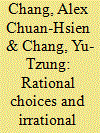

|
|
|
| 12 |
ID:
114703


|
|
|
|
|
| Publication |
2012.
|
| Summary/Abstract |
As the United States prepares to exit Afghanistan, it is focusing too much on security, overlooking the political elements of the transition, write two former senior U.S. officials. To leave behind a stable government in 2014, Washington needs to push harder for electoral reforms, negotiations with the Taliban, and a regional settlement involving Pakistan.
|
|
|
|
|
|
|
|
|
|
|
|
|
|
|
|
| 13 |
ID:
160190
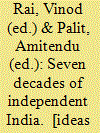

|
|
|
|
|
| Publication |
Gurgaon, Penguin Random House India Pvt Ltd, 2018.
|
| Description |
xxiii, 294p.hbk
|
| Standard Number |
9780670090877
|
|
|
|
|
|
|
|
|
|
|
|
Copies: C:1/I:0,R:0,Q:0
Circulation
| Accession# | Call# | Current Location | Status | Policy | Location |
| 059457 | 954/RAI 059457 | Main | On Shelf | General | |
|
|
|
|
| 14 |
ID:
132777
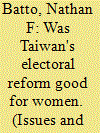

|
|
|
|
|
| Publication |
2014.
|
| Summary/Abstract |
Relative to other countries in the world, Taiwan has consistently elected large numbers of women to political office. This paper argues that women have done well in Taiwan because of the reserved female seat system in SNTV elections and that the 2005 reform from SNTV to MMM did not produce further gains in gender equality. SNTV with reserved seats produces incentives for parties to cultivate large numbers of powerful women in order to ensure that other parties are not able to win cheap or free seats. Empirically, the evidence shows that women win significantly more votes and seats in districts with reserved seats than in those without them. Moreover, winning an SNTV election requires candidates to amass power resources, and the women who survive this arduous test have power that can be used for other political goals. Women elected on party lists do not necessarily accumulate as much power. The new MMM system has arguably not produced more female legislators than the old SNTV system would have, and it has reduced the aggregate power that women in the legislature can wield.
|
|
|
|
|
|
|
|
|
|
|
|
|
|
|
|